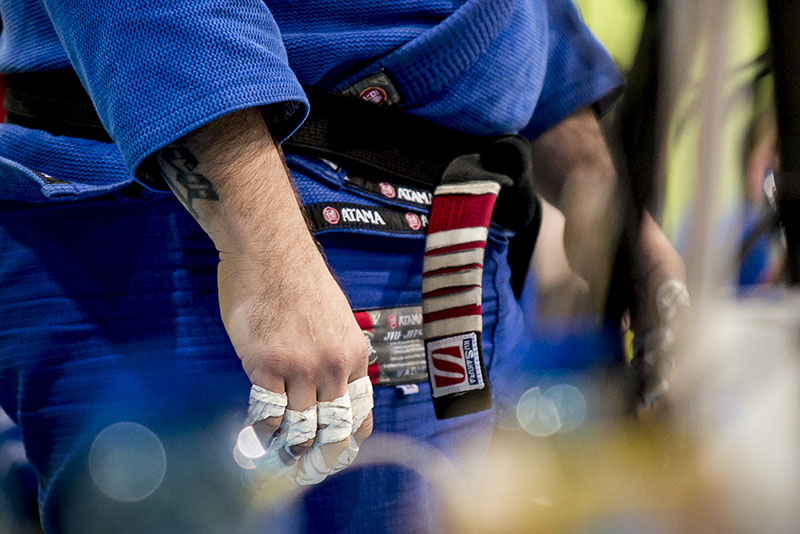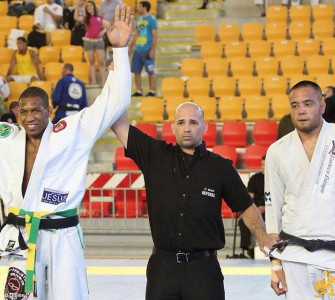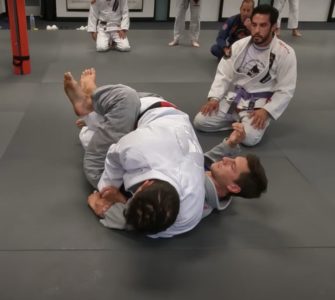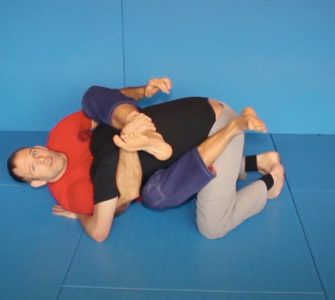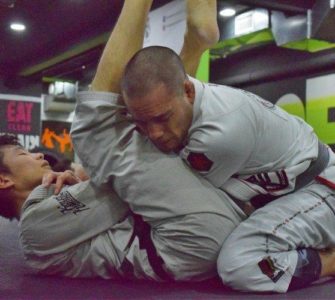Fighting is a business now. People at the highest levels of every combat sport are pretty much done working for free (except for you IBJJF, you’re the exception for some reason.) As with all businesses, the only real ideal is to make as much money as possible. To that end, top level grapplers have adopted a certain persona. They talk themselves up, put their opponents down, and tell everyone how they should’ve won any match they lost. This behavior makes sense in a practical way. Attention seeking behavior is a better way to get attention than to humbly hone your craft. Getting attention is how you get advertisers to pay money to get space on your show and get audience members to pay out money for tickets. This is how athletes get paid.
I don’t fault top level grapplers for wanting a nice paycheck. If you’re going to dedicate your life to improving at something it makes sense that you would want to be adequately compensated for your trouble. I do worry however, that this has created a culture in sport grappling that is the antithesis of the character building that martial arts (and sport in general) is supposed to be good for. When young grapplers see the people at the top of their sport behave like idiotic teenagers, they use this is an example of how strong people are supposed to behave (See Gordan Ryan’s use of the Gracie’s brutish dojo storming and bar fighting days as his ideal for how “real men” should behave as an example.) I don’t know if I believe that people at the top of their sport should be held accountable for the fact that people use them as role models (most do not intentionally position themselves as such, and would probably say that they’re not role models if asked directly), but I would like to posit an alternative.
For my personal use, I have a set of tenets that I believe personify the ideal grappler. I would like to present them here, in the hope that they can provide an alternative example for people seeking a philosophical underpinning to the training that they are engaged in. There is nothing inherit about training grappling that will make you a better person. If you want to improve off the mats, it will take the same focus and dedication you bring on the mats.
#1. Endless Pursuit of Improvement: Grappling teaches us that there is always something more to learn. No technique is perfect, and no selection of strategy is flawless. There is always a new detail to learn or a new tweak to be made. To see this though, we must first take a sober look at our jiu-jitsu and see that it is not and never will be perfect.
Likewise, in life, we never handle everything perfectly. Perhaps we are a poor listener or are unable to admit when we are wrong even about trivial things. It is easy to rationalize your own poor behavior, but if you are to get past it, you must be able to examine yourself as if you are a stranger. You will never be a perfect person, but if you will continually and honestly reflect on how you could do better, you will steadily become a better one.
#2. Responsibility: It is common to hear people shift the blame for their defeats in jiu-jitsu. “I was sore that day, the ref was an idiot, my opponent was a sandbagger.” I believe though, that the ideal grappler should always take responsibility for their defeats. “I was unprepared, my strategy was flawed, my technique was insufficient.” In this way, we can adhere to the first tenet, and always seek improvement from defeat. Rather than make excuses, and continue our original (unsuccessful) path, unaltered.
In the same way, a grappler should own up to their mistakes in life. If you are late, don’t concoct an excuse, tell them you lost track of time, and are sorry for disrespecting theirs. If you fail a test, don’t blame the teacher for not teaching you hard enough, admit that you should have studied more on your own. If you are unhappy in your relationship, don’t take your misery out on your partner, work to improve things with them, or explain to them that you need to go your separate ways.
#3. Respect: Jiu-jitsu teaches us what its like to struggle. For many people, even showing up to train is a tremendous mountain to overcome. The feeling of futility many white belts feel when they try their hardest but get tapped over and over again is enough to crush most people and get them off the mats forever. Every colored belt has faced this and many other challenges for years, and still shows up to roll. For this reason, jiu-jitsu teaches us that the people we share the mats with deserve our respect.
The understanding of struggle is the understanding of the human condition. Everyone feels like they’re fighting a war over one thing or another. If you take the time to get to know almost anyone, you’ll realize they struggle with quite a lot every day. Everyone is doing their best to overcome to the challenges life has given them, and no one should be more empathetic to that than grapplers.
#4. Calm: Jiu-jitsu teaches us not to panic no matter the situation. Even when a superheavyweight has passed your guard and has made his shoulder one with your cheekbone, you take a deep breath and wait for your opportunity to move. There is nothing to be gained from worrying about the mistakes that got you there. All you can do is stay calm, and look for your opportunity to escape.
In life, a grappler should be nigh unflappable. There are few situations as primally urgent as the severing of your blood supply from your brain, or the imminent destruction of your shoulder joint. Even if everyone else is in panic mode, you should strive to take a deep breath, and calmly examine the options available to you to improve the situation.
It would be incredibly self-righteous to say that anything I wrote above should be considered the canon philosophy of all jiu-jitsu practitioners, and this article is admittedly the very definition of self-indulgence. But for my benefit as much as anyone else’s I felt that it was important to detail the principles that training Jiu-Jitsu has instilled in me, and how they inform the kind of person I want to be. Everyone ultimately has to decide what kind of person they want to be for themselves, and training jiu-jitsu may or may not have anything to do with that decision. There are plenty of assholes that start jiu-jitsu, and stick with it only to become assholes that are now good at jiu-jitsu. But if you were looking for a mold to follow, perhaps the above may be of some use to you.
Written by John Brashear

